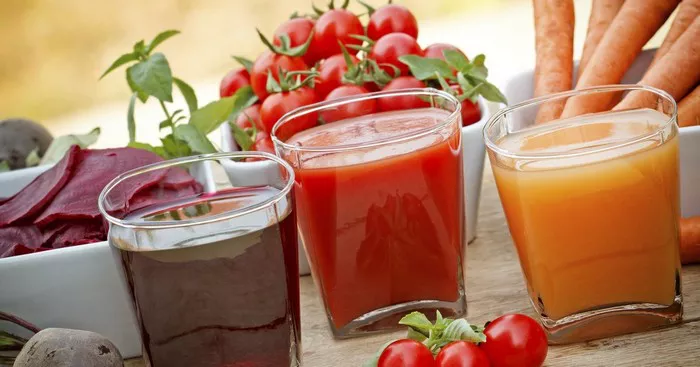Low blood pressure, also known as hypotension, can cause dizziness, fainting, and fatigue. While maintaining a balanced diet and healthy lifestyle are essential, incorporating specific juices into your daily regimen can help manage and alleviate the symptoms of low blood pressure. This article delves into various juices that are beneficial for individuals with low blood pressure and explains their nutritional benefits, mechanisms of action, and practical tips for inclusion in your diet.
Which Juice Is Good for Low Blood Pressure?
1. Pomegranate Juice
Pomegranate juice is a powerful source of antioxidants, particularly polyphenols, which have been shown to improve cardiovascular health. It can help manage low blood pressure by enhancing blood flow and reducing oxidative stress.
Nutritional Benefits:
- Rich in antioxidants like vitamin C and E
- Contains potassium, which helps regulate blood pressure
- Anti-inflammatory properties
Mechanisms of Action:
The antioxidants in pomegranate juice help in reducing oxidative stress and inflammation, which can otherwise contribute to poor cardiovascular function. The potassium content helps balance sodium levels, promoting optimal blood pressure.
Practical Tips:
Drink one glass of fresh pomegranate juice daily.
Ensure it’s 100% pure pomegranate juice without added sugars.
2. Beetroot Juice
Beetroot juice is renowned for its blood pressure-regulating properties. It contains high levels of nitrates, which the body converts into nitric oxide, a compound that relaxes and dilates blood vessels, improving blood flow and reducing blood pressure.
Nutritional Benefits:
High in nitrates
Contains essential vitamins and minerals like folate, vitamin C, and potassium
Rich in antioxidants
Mechanisms of Action:
The nitrates in beetroot juice convert to nitric oxide, which helps in vasodilation, reducing blood pressure. This process is particularly beneficial for people with low blood pressure as it enhances blood flow and oxygen delivery to vital organs.
Practical Tips:
Consume fresh beetroot juice daily, preferably in the morning.
Mix beetroot juice with other vegetables or fruits to improve taste and nutritional profile.
3. Carrot Juice
Carrot juice is another excellent option for managing low blood pressure. It is rich in beta-carotene, potassium, and antioxidants, all of which support cardiovascular health.
Nutritional Benefits:
High in beta-carotene and vitamin A
Contains potassium
Rich in antioxidants
Mechanisms of Action:
Potassium in carrot juice helps maintain electrolyte balance, crucial for normal heart function and blood pressure regulation. Beta-carotene and antioxidants reduce oxidative stress, supporting overall cardiovascular health.
Practical Tips:
Drink a glass of fresh carrot juice daily.
Combine with other fruits like apples or oranges for added flavor and nutrition.
4. Orange Juice
Orange juice is packed with vitamin C, flavonoids, and potassium, making it an excellent choice for those with low blood pressure. Its hydrating properties also support overall health and blood pressure stability.
Nutritional Benefits:
High in vitamin C and flavonoids
Contains potassium
Hydrating properties
Mechanisms of Action:
The high vitamin C and flavonoid content in orange juice enhance blood vessel function and improve blood circulation.
Potassium helps regulate sodium levels, promoting stable blood pressure.
Practical Tips:
Opt for freshly squeezed or 100% pure orange juice without added sugars.
Drink a glass of orange juice with breakfast.
5. Lemon Juice
Lemon juice, rich in vitamin C and antioxidants, can help improve blood pressure levels by supporting cardiovascular health and improving blood flow.
Nutritional Benefits:
High in vitamin C
Contains antioxidants
Hydrating properties
Mechanisms of Action:
Vitamin C in lemon juice helps in maintaining the flexibility of blood vessels and improving circulation. The antioxidants reduce oxidative stress, which can positively impact blood pressure regulation.
Practical Tips:
Add freshly squeezed lemon juice to a glass of water and drink it in the morning.
Use lemon juice as a salad dressing or flavor enhancer in meals.
6. Watermelon Juice
Watermelon juice is not only refreshing but also beneficial for managing blood pressure due to its high water content and presence of an amino acid called L-citrulline.
Nutritional Benefits:
High in water content
Contains L-citrulline
Rich in vitamins A and C
Mechanisms of Action:
L-citrulline in watermelon juice converts to L-arginine in the body, which then produces nitric oxide, aiding in blood vessel relaxation and improved blood flow. The high water content also ensures adequate hydration, essential for maintaining blood pressure.
Practical Tips:
Drink a glass of fresh watermelon juice during hot weather for hydration and blood pressure regulation.
Blend watermelon with a bit of lime juice for added flavor.
7. Prune Juice
Prune juice is well-known for its digestive benefits but also aids in regulating blood pressure due to its high potassium content and antioxidant properties.
Nutritional Benefits:
High in potassium
Contains fiber and antioxidants
Good source of vitamins A and K
Mechanisms of Action:
Potassium in prune juice helps in balancing sodium levels and maintaining healthy blood pressure. The antioxidants support cardiovascular health by reducing oxidative stress.
Practical Tips:
Consume a small glass of prune juice daily, especially in the morning.
Ensure the juice is 100% pure prune juice without added sugars.
8. Tomato Juice
Tomato juice, rich in lycopene, potassium, and vitamin C, is excellent for cardiovascular health and blood pressure management.
Nutritional Benefits:
- High in lycopene and vitamin C
- Contains potassium
- Antioxidant properties
Mechanisms of Action:
Lycopene and vitamin C in tomato juice improve blood vessel function and circulation. Potassium helps regulate electrolyte balance, crucial for maintaining normal blood pressure.
Practical Tips:
- Drink a glass of low-sodium tomato juice daily.
- Combine with other vegetable juices for a nutrient-rich drink.
Conclusion
Incorporating these juices into your daily diet can help manage low blood pressure and improve overall cardiovascular health. It is essential to choose fresh, natural juices without added sugars to maximize their health benefits. Alongside drinking these juices, maintaining a balanced diet, regular physical activity, and adequate hydration are crucial for optimal blood pressure management.
By understanding the nutritional benefits and mechanisms of action of these juices, you can make informed choices to support your health and well-being effectively.

